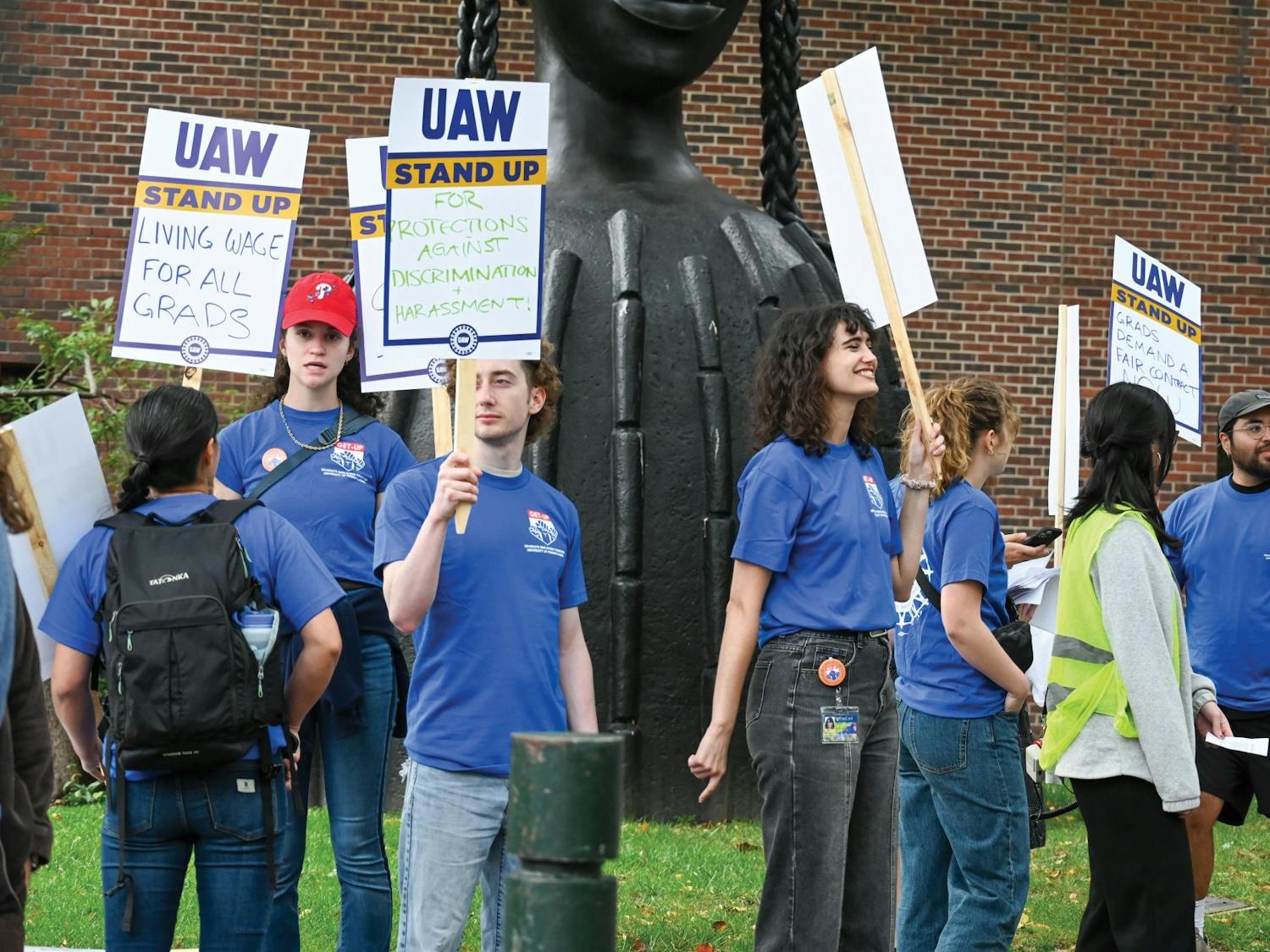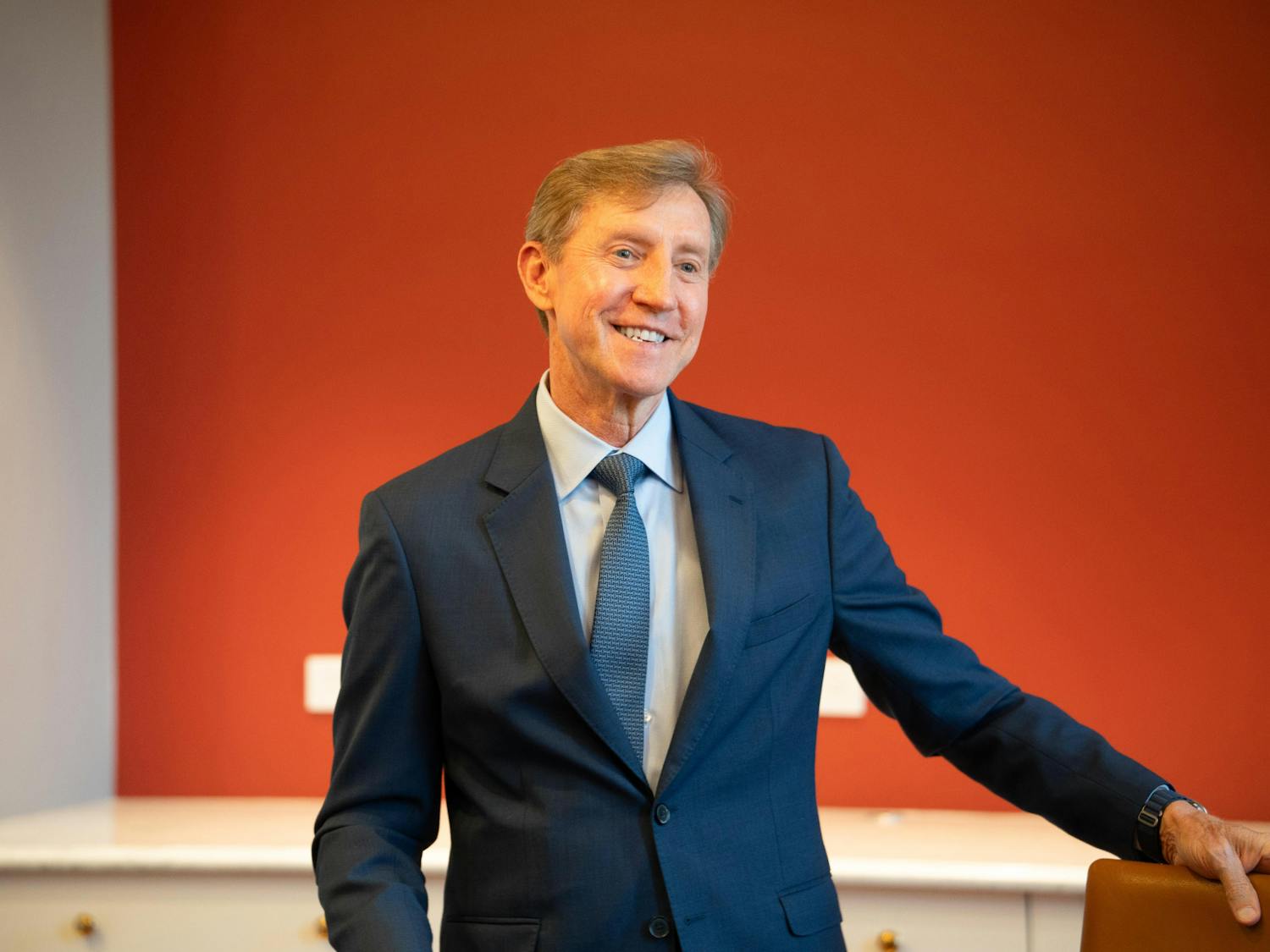Leaders of religiously affiliated organizations on campus are moving ahead to acquire Student Activities Council funding of interfaith groups.
While religious groups at all of the other schools in the Ivy League are funded by their universities, Penn's faith-based organizations have no access to that kind of sponsorship.
"Penn is completely independent. It wasn't founded with a religious mission," University Chaplain William Gipson said. "It doesn't have to fund any religious organizations."
According to SAC's current policy, "Student activities or programs designed to elicit support for religious ideologies and promote membership in sectarian groups will not be funded."
SAC is the primary source of funding for student groups at Penn.
"There's a danger in funding a religious group," said former SAC chairman Omar Vasquez. "Do we then fund a 'Penn for Life' [club] or 'Penn for Choice'? It's an ugly dispute, [and] once you open the door, it's not one you can easily close again."
To address concerns like those of Vasquez, a Wharton senior, religious groups are calling for funding of interfaith organizations that do not have specific religious affiliations and beliefs, Gipson said.
"Interfaith movements are to engage diversity on campus. They're not to remove distinction between groups, but to diminish animosity and misunderstanding among them," Gipson said.
On Nov. 8, leaders of Penn's religious groups met with President Amy Gutmann to discuss the issue. On Feb. 10, these students met with the University Board of Trustees.
College junior Neha Gupta, chairwoman of PRISM -- Programs in Religion, Interfaith and Spirituality Matters -- attended the meeting with the Board of Trustees and said she looked forward to negotiating with SAC in the near future.
Gupta, who also serves as coordinator for the Hindu Students Council/Young Jains of America, said that there was difficulty in raising funds and coordinating events for the group.
She said she was in a state of "panic" when she had difficulty reserving a room for prayer on Diwali, an important Hindu holiday in October or November.
"The only thing I could think of was a prayer service on College Green, and I don't even think that is allowed," Gupta said.
Gupta emphasized the importance of religious organizations for many students on campus.
"People joined [religious groups] not necessarily because they want to, but because they need to. Religion is how we live," she said.
As a leader of religious groups on Penn's campus, Gupta feels especially responsible for impacting future funding decisions.
"I didn't think of myself as a religious person before I came to Penn. [Now that] I'm here, I feel I have to protect it."
Gupta and PRISM are working to coordinate interfaith events -- such as a recent tsunami relief benefit -- in the hope of one day receiving funding for similar interfaith events.
Meanwhile, universities across the country that fund religious organizations are taking actions to ensure that the financial support they provide is not going toward the promotion of ideologies that are discriminatory.
In 2000, the Tufts student Judiciary Board withdrew funding and recognition of a Christian student group for not allowing an open lesbian to hold a board position.
Similar events have since taken place at other universities -- including Arizona State University and the University of North Carolina at Chapel Hill -- placing the First Amendment rights of Christian students groups at odds with the universities' non-discrimination policies.
Stanford Dean for Religious Life Scotty McLennan, who was the chaplain at Tufts at the time of the conflict, said, "There's a clause [in the school's policy] that says you do not discriminate on the basis of sexual orientation and a clause that says you do not discriminate on the basis of religious belief. In extreme cases, these come into conflict."
The Tufts situation was resolved with the readmission of the Christian fellowship, so long as it agreed to avoid future discrimination.
Penn has not experienced any such conflict -- mostly because its religious groups do not receive funding.
But McLennan charged Penn with being discriminatory in this respect.
"That violates part of the United States Constitution," McLennan said. "You can't discrim-inate on the basis of religious principle."
Rodney Robinson, Penn's associate director of student life -- who is in charge of advising SAC -- recently requested the names of religious student leaders from Chaplain Gipson after their meeting with the Board of Trustees, potentially in an effort to move forward with SAC funding of interfaith groups. Gipson called this gesture one of "openness" and is hopeful about its implications.
In reference to possible funding of religiously affiliated organizations though, Robinson said, "That's entirely up to the students [on SAC] to decide."








